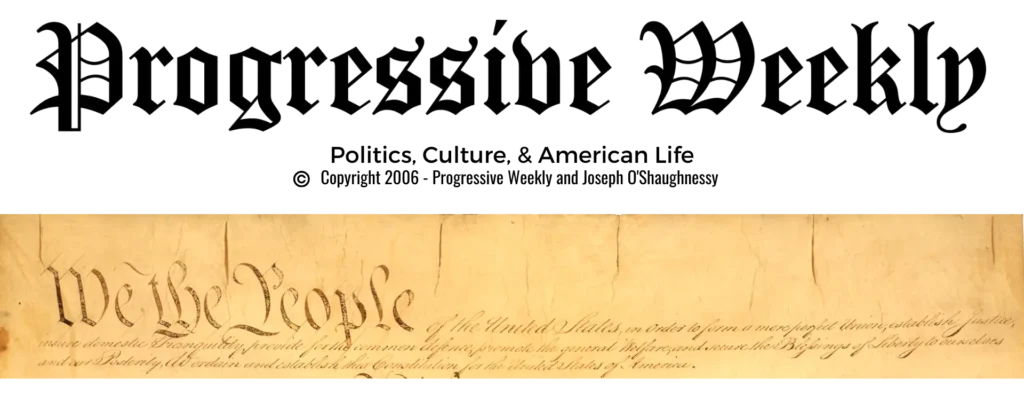Many short men are taller than Robert Reich. But as they said about Ari Onassis (who wasn’t that short, Ms. Onassis was just a little taller) he was not so short when he stood on his wallet. When Dr. Reich stands on his intellect, he is about the same height as Bill Russell.
Do you really want to solve our economic problems? Do you want a job? Do you want it to last for 30 years, or your continued employment in some related field to last for 30 years? Do you want health care and the ability to retire on at least a modest income?
Then listen to Robert Reich. Because, if you want a society where you may get rich but if you don’t you will still be OK as long as you work hard, then he is the one person whose ideas will definitely make that happen. He is a brilliant economist but also a concerned fellow citizen.
1. On tax cuts. Dr. Reich says that tax cuts do not create jobs nor do they in themselves create an expansive economy. The benefits of tax cuts do not “trickle down” to the general population. The fact is that the rich get richer and the government’s tax revenues get smaller, and we end up with greater and greater government deficits. That eventually results in cuts to services used primarily by those who did not get big tax cuts.
2. On tax increases. On the other hand, tax increases do have two positive results. First, they increase government revenues. That’s basic. Second, they force people with very large incomes to consider whether they should pay more in taxes or to invest their money before it is declared income so that in several years it will grow beyond what it would have been if they had paid the much lower taxes. In the long run, Professor Reich points out, they will be much better off at a 10% greater tax rate simply because it will force them to participate in growing the economy which will help them and create a better society at the same time.
3. Austerity is not necessarily good. Now is not the time to cut back on government says Dr. Reich. Spending cut planned for immediate action could cut as many as 700,000 jobs. Not only can the economy not stand another 700,000 jobs lost, and the economic impact of at least $21 billion lost in consumer spending, plus another $10 billion in added government costs. So this would be a disaster for the economy, yet other economists are strolling along singing a song as they walk over the precipice. We could fall into a Depression from this.
4. Cutting health care costs is essential. The President’s plan was a good one, says Dr. Reich, but it should go further. The current cost of health insurance and medical procedures and treatments could be cut in half. This is our biggest current cost and the excesses in the system are bringing the country down.
What we need to do is accelerate the Presdent’s plan by extending Medicare to everyone, says Dr. Reich. Eliminating the profit factor will bring costs down by about 30% right away. So an annual $8,000 health insurance premium would go quickly to $5,600. Prescription drugs would drop low enough to be paid for completely by Medicare. Medical procedures, just like prescription drugs would be negotiated, which would also bring prices down.
5. Social Security is solvent but should be made better. Social Security is solvent for the next 26 years, just as it is, without touching it in any way. But the Social Security part of the payroll tax has not been touched for over 25 years. That means that we now have higher wages. So people at higher wage rates, those above $106,000 should pay tax. That would fix Social Security until at least 2075 by which time we may have come up with an alternate solution.
6. Public works. Dr. Reich feels that, in addition to exempting for a period the first $20,000 of income from the payroll tax, we would be sending that amount of money almost directly into the consumer economy which would in turn stimulate sales and growth. But he would expand employment by creating something like the old WPA of Franklin Roosevelt. Dr. Reich is talking about a direct and immediate of job creation in more than a million. From crumbling infrastructure development to classroom teaching, he says that a direct jobs program will be much more immediately stimulative.
7. Tax adjustments are necessary. In order to create meaningful jobs that can eventually be phased out or can be phased into a private economy, Reich says that at new tax table is necessary. The top bracket should now be 70%. Anyone who makes over $5 million a year should pay 70% tax on all that income over $5 million. And we need a financial transactions tax of one-half of one percent. This would generate tens of billions of dollars per year and allow us to add more employees which in turn would strengthen the economy.
It is pretty clear that we need to levy some kind of tax on U.S. goods manufactured abroad and returned here for sale. Those funds should be used to develop U.S. manufactured goods and manufacturing jobs right here in the United States.
All these things will have a strong impact on the economy and on the jobs market. This is exactly what we need to create jobs, to begin to cut the deficits and to restore America’s position as an international leader in global commerce.

